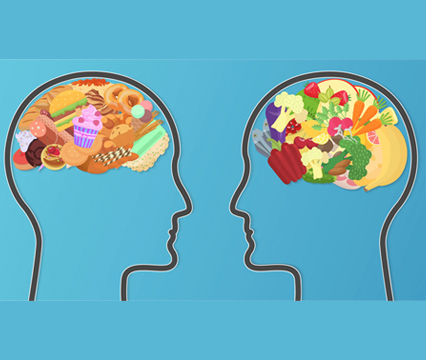Executive functioning difficulties in relation to food addiction, disordered eating attitudes, and metabolic syndrome markers among adolescents seeking obesity treatment: a cross-sectional analysis
This study explores the impact of executive functioning (EF) difficulties on food addiction symptoms, eating attitudes, and metabolic syndrome indicators among adolescents seeking treatment for obesity. A sample of 35 adolescents was evaluated using performance tasks (Stroop’s task, Cancellation task) and parent reports via the Behavior Rating Inventory of Executive Function (BRIEF). Self-reported measures included the Yale Food Addiction Scale (YFAS) and the Eating Attitudes Test-40 (EAT-40). The findings revealed a mean total symptom score of 4.66 (± 1.45) on the YFAS, with significant symptoms such as ‘Repeated unsuccessful attempts to stop or decrease food consumption’ (94.3%), ‘Tolerance to the same amount of certain foods’ (80.0%), and ‘Continuing to eat despite knowing the negative consequences’ (77.1%). Notably, 48.6% of participants met the YFAS diagnostic threshold, which correlated with poorer performance in the Stroop Task and parent-reported Emotional Control difficulties (p < .05). Specific food addiction symptoms exhibited varying correlations with executive functioning (EF) difficulties. For instance, ‘Eating for longer durations and higher amounts than intended’ was linked to challenges in Emotional Control and Working Memory. Similarly, ‘Continuing to eat despite negative outcomes’ correlated with difficulties in multiple EF domains, including Shift, Emotional Control, Initiate, Plan/Organize, and Organization of Materials. Only dieting as a disordered eating attitude showed a significant correlation with EF difficulties, where lower endorsement of dieting was associated with challenges in Inhibit and Working Memory. Furthermore, EF difficulties were associated with higher body mass index (BMI) and waist circumference, alongside adverse metabolic parameters such as fasting blood glucose, insulin levels, HOMA-IR, triglycerides, and blood pressure. The study emphasizes the connection between specific EF difficulties and food addiction symptoms, dieting behaviors, and metabolic syndrome markers in adolescents with obesity, suggesting a need for further research involving larger and more diverse populations. [NPID: BMI, executive functioning, food addiction, obesity, memory, emotional control]
Year: 2025
 Navigation
Navigation









